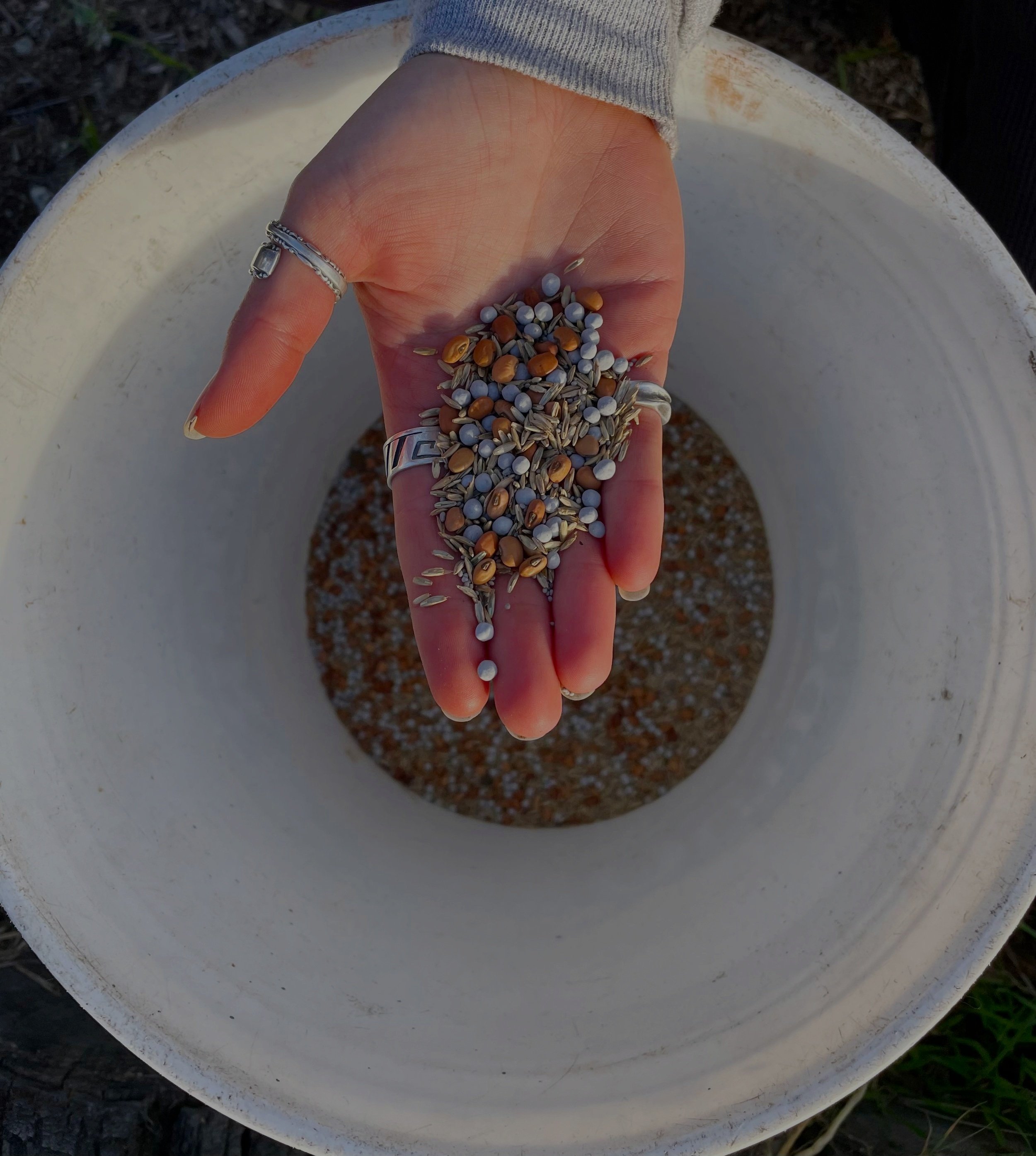Regenerative
Animal Agriculture
Urban Farming
REAP's Regenerative Animal Agriculture program integrates livestock into urban farming, and promotes soil health, biodiversity, and sustainability in an educational context. Nature-based practices like agroforestry and silvopasture frame animals as agents of regeneration, improving farming outcomes and climate impact.
We need interested community members like you to come support our animals and the work they do! Join our community and work on behalf of your community.
There are 2 main ways to stay engaged:
Email List: We’ll keep you posted on what’s going on.
Guild: A little more hands on, a lot like a club!
Our Program
We practice regenerative animal agriculture right here in Alameda! REAP’s sheep and chickens demonstrate the power and potential of closed-loop systems, and the benefits of animals for soil health. This program’s goal is to engage individuals of all ages and knowledge levels in the processes, techniques, and practices of regenerative animal agriculture. We want to provide knowledge and opportunities to accelerate careers, businesses, and hobbies toward higher impact.
In the World
At REAP, we work to demonstrate 3 practices at work in regenerative agriculture across the globe: agroforestry, silvopasture, and rotational grazing. Essentially, these practices integrate livestock, trees, shrubs, and crops into holistic management practices. Regenerative animal agriculture is growing in interest and applications across the world, from large-scale farms to urban gardens to California vineyards.
Career Pathways
From weed abatement for fire suppression to silvopasture for increased soil health, we need experts to integrate animals into agricultural and ecological practices. Animals are crucial to regenerative farming practices, and working with animals takes knowledge and practice. We need animal caretakers, herders, ranchers, as well as people to plan and implement animal-based programs for remediation and farming.
Current Status
To get our programs up and running there are a few things that need to be established! Below are some of the key elements and where we stand in terms of getting things up and running.
It’s impassioned community members, volunteers, and funders who help us push the dial and get closer to our goals!
Program Vision
Industry Sector Analysis
Employers, Trade Organizations, and Unions
Curriculum and Class Resources
On Campus Resources and Facilities
Job Placement Resources
Funding
Status Updates Coming Soon!
Featured Partners
Bay Beehives maintains several hives in REAP’s pollinator gardens! The bees get access to a variety of flowers while REAP gets the benefit of honey bees pollinating our plants!
REAP currently partners with the Wild Oyster Project to provide oyster shells to our chickens! Shells are collected from local restaurants and then given to the chickens to be picked clean. The shells then go up onto rooftops to cure, which regulates the building’s temperature. Finally they are released back into the bay to accelerate oyster growth!
Join Our Guild
Want to get involved more deeply with REAP’s regenerative animal agriculture program? Want to meet other people passionate about earth care, people care, and fair share? Join our regenerative animal agriculture guild! It’s like a club hosted by REAP for passionate people to do cool stuff!
For more information about what guilds are to REAP click here!

Other Ways to Get Involved
We are seeking volunteers to help care for our chickens and sheep! Tasks may include picking up food, feeding the animals, cleaning the chicken coop and sheep pen, and more! Visit our volunteering page to get started.
We are always seeking one-time gifts, DAFs & grants, and in-kind donations to help our programs! Visit our donations page for more information.
Sign up for email updates here!
For more information and local initiatives check out our Regenerative Animal Agriculture Resource Page!








